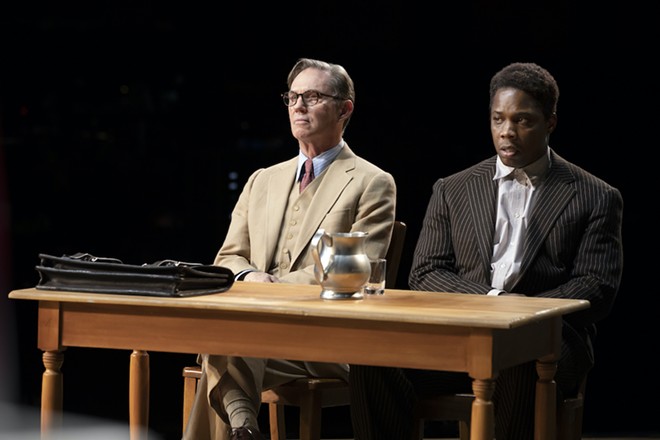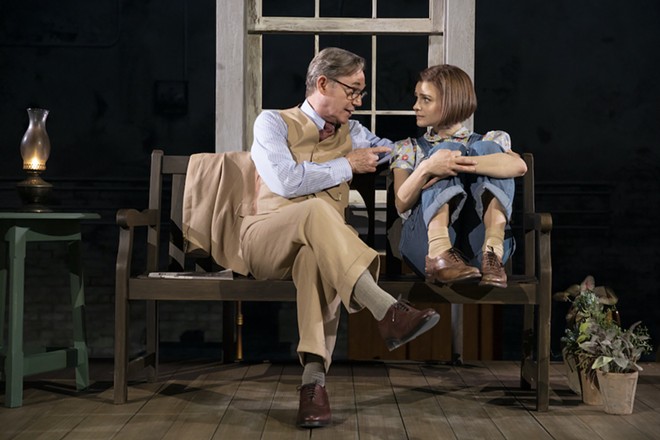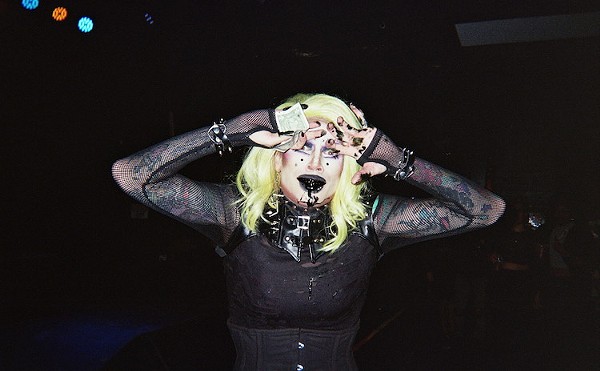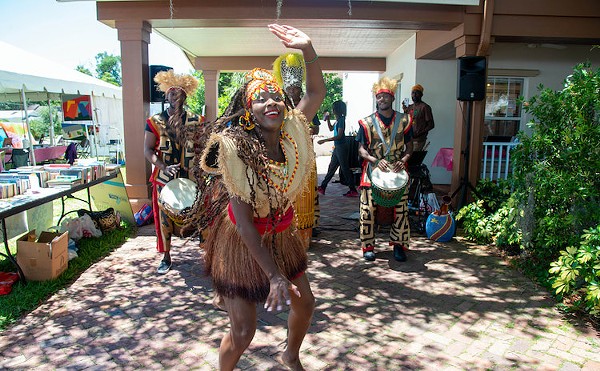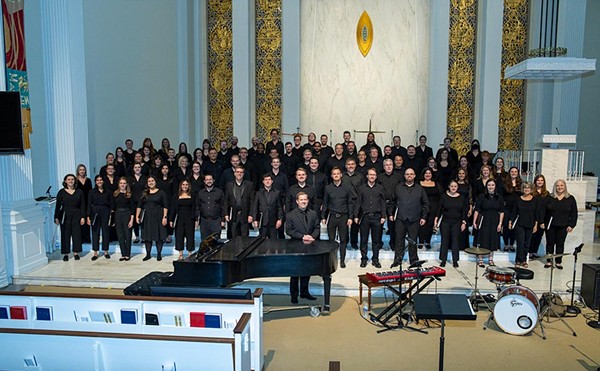In recent years, Broadway in Orlando has presented musicals at the Dr. Phillips Center that evoked responses ranging from delight to despair. But no matter how toe-tapping, none has engaged and enraged me like Harper Lee’s To Kill a Mockingbird, playing in Orlando through March 26. This is thankfully not a musicalization of the middle school English curriculum staple; nor is it merely a live re-creation of the venerated 1962 film featuring Gregory Peck. Rather, playwright Aaron Sorkin and director Bartlett Sher — supported by an exceptional team of actors and designers — have exploded and expertly reassembled the ossified homily into something as immediate and infuriating as today’s headlines.
Purists may pucker at the liberties taken in Sorkin’s script, but my misty monochrome memories of the original didn’t prepare me for the layers of complexity in his adaptation, which remains faithful to the major plot points but presents them with new framing and chronology. Scout Finch (Melanie Moore), the precocious young daughter of righteous rural attorney Atticus Finch (Richard Thomas), now narrates the story alongside her headstrong brother, Jem (Justin Mark), and his gregarious bestie, Dill (Steven Lee Johnson). Their often-sidetracked tale hopscotches back and forth between the iconic trial where Atticus defends Tom Robinson (Yaegel T. Welch), a Black farmhand falsely accused of rape, and the mysterious stabbing of Bob Ewell (Joey Collins), the racist father of Tom’s alleged victim, Mayella (Arianna Gayle Stucki).
Sorkin’s structural renovations revitalize this Mockingbird, giving the plot a sense of urgency despite its tragic inevitability. His dialogue has all the passion of The West Wing, as well as the wit of Sports Night, making what I assumed would be a nonstop tearjerker sometimes feel more like a snappy sitcom. It still seems problematic that a show about civil rights is centered around white people, though, and while Welch (a veteran of the New York cast) is heartbreaking in his brief role as the central sacrificial lamb, he’s given little onstage agency.
However, Calpurnia (Jacqueline Williams) and Finch’s children challenge and undercut the dominant narrative — which has long held up Atticus as a model of progressive American virtue — and instead expose him as the well-intended white moderate MLK Jr. railed against, and this twist completely transformed what I thought I knew about Atticus.
Richard Thomas, who is still mostly known as “John Boy” from The Waltons (although I remember him best as Bill from the 1990 Stephen King’s IT miniseries), proves perfect for playing an easygoing idealist whose innate pacifism is in conflict with his urge to do good. He may be following in the footsteps of film stars like Jeff Daniels and Ed Harris, but I can’t imagine them being any better than Thomas at conveying both Atticus’ infectious optimism and also his utter devastation upon finally understanding where his hubristic insistence on “respecting everyone, no matter who you’re disrespecting by doing it” ultimately leads.
I could easily rave for paragraphs about the entire ensemble, from Mary Badham —who earned an Oscar nod as young Scout in the original film, and returns here as the abrasive morphine-addled Mrs. Henry Dubose — to Greg Wood, stepping in on opening night as amiable outcast Link Deas, who chilled my blood with his delivery of the ever-relevant observation “when horror comes to supper, it comes dressed exactly like a Christian.”
Likewise, Miriam Buether’s rustic sets and Ann Roth’s homespun costumes deserve pages of praise, along with Jennifer Tipton’s lighting and Scott Lehrer’s sound. But my biggest applause goes to Sher’s staging, which flows cinematically without losing its handmade theatricality, like the oddly idealized offspring of Des McAnuff and Bertolt Brecht.
Sadly, much of this story feels far more current today than when I first heard it 40 years ago, and Atticus’ plea — spoken for the onstage jury, but delivered dead into the audience’s eyes — that “we have to heal this wound or we will never stop bleeding” has never sounded more desperate. Finch’s final words may claim that joy will come in the morning, but the play’s finale chorale sounded to my ears more like a funeral dirge for our collective faith in America’s principles.
That may sound pretty dire, but that’s all the more reason to see a show like this while you still can, before it’s outlawed as overly woke. Orlando audiences are often too eager to offer unearned standing ovations, but rarely has To Kill a Mockingbird’s curtain-closing invocation “all rise” been more deserved. I don’t know if it really is a sin to kill a mockingbird, as Atticus’ father believed, but it would certainly be a sin for anyone who cares about art and justice to skip this show.

